2024-04-18
Our new paper "High-throughput characterization of bacterial responses to complex mixtures of chemical pollutants" is out in Nature Microbiology! We found that bacterial strains responded in different ways to the stressor mixtures, which could not be predicted simply from their phylogenetic relatedness. We found that more complex chemical mixtures produced more negative impacts on bacterial growth, but also revealed more net interactions, with antagonisms most prevalent. We found that a mixed culture of bacteria was more resilient to multiple stressors than individual isolates.2023-12-18
I took down our big treehole evolution/sorting/dispersal experiment last week, just in time to be able to show some preliminary results at MMEG2023, winning a prize for best poster. 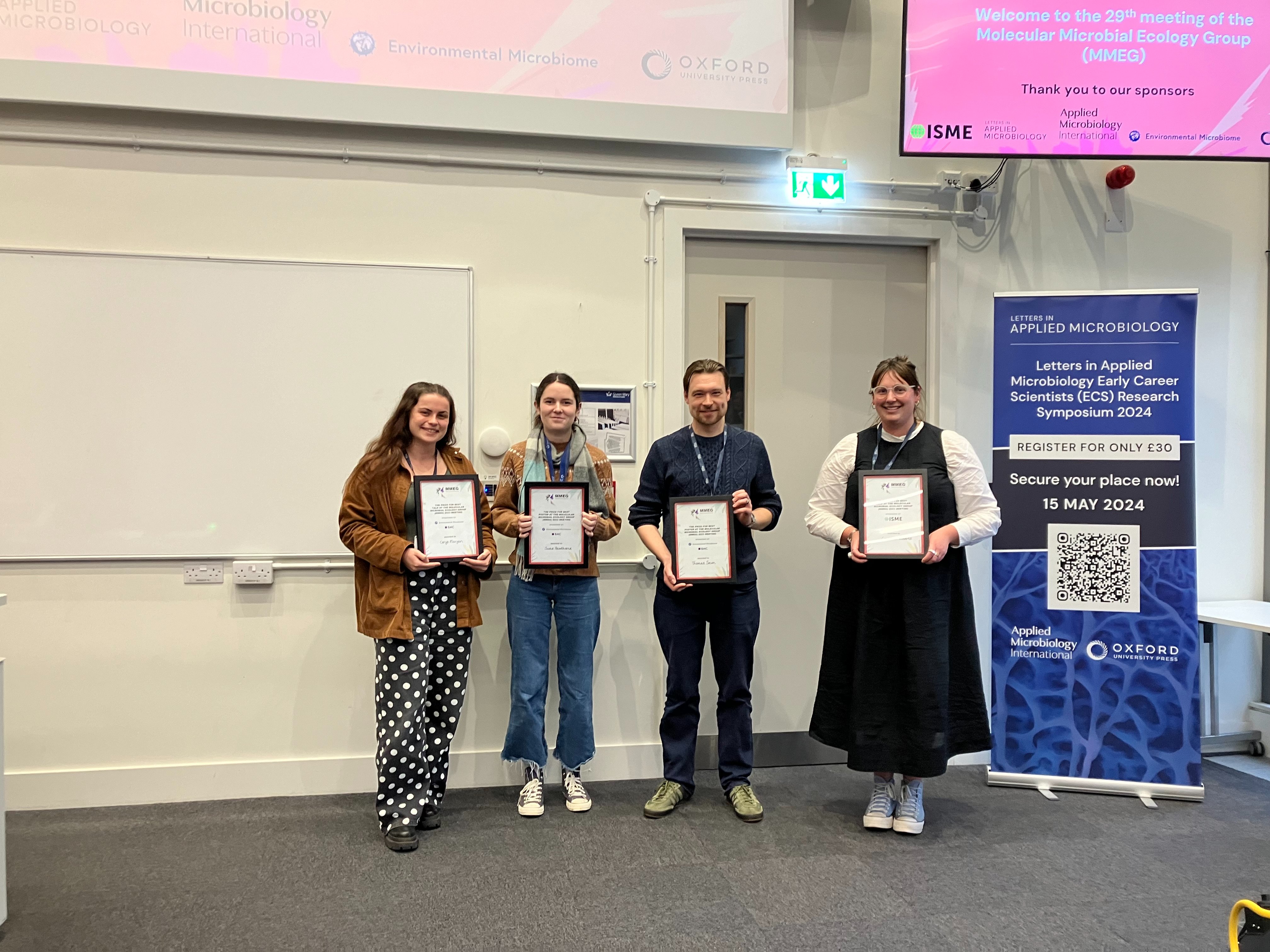
There's an online version of my poster to download: [HERE].2023-07-25
Another great Bugs, Birds and Beasts day at Silwood: Winogradsky columns and microbial fuel cells on show in the Bell lab. 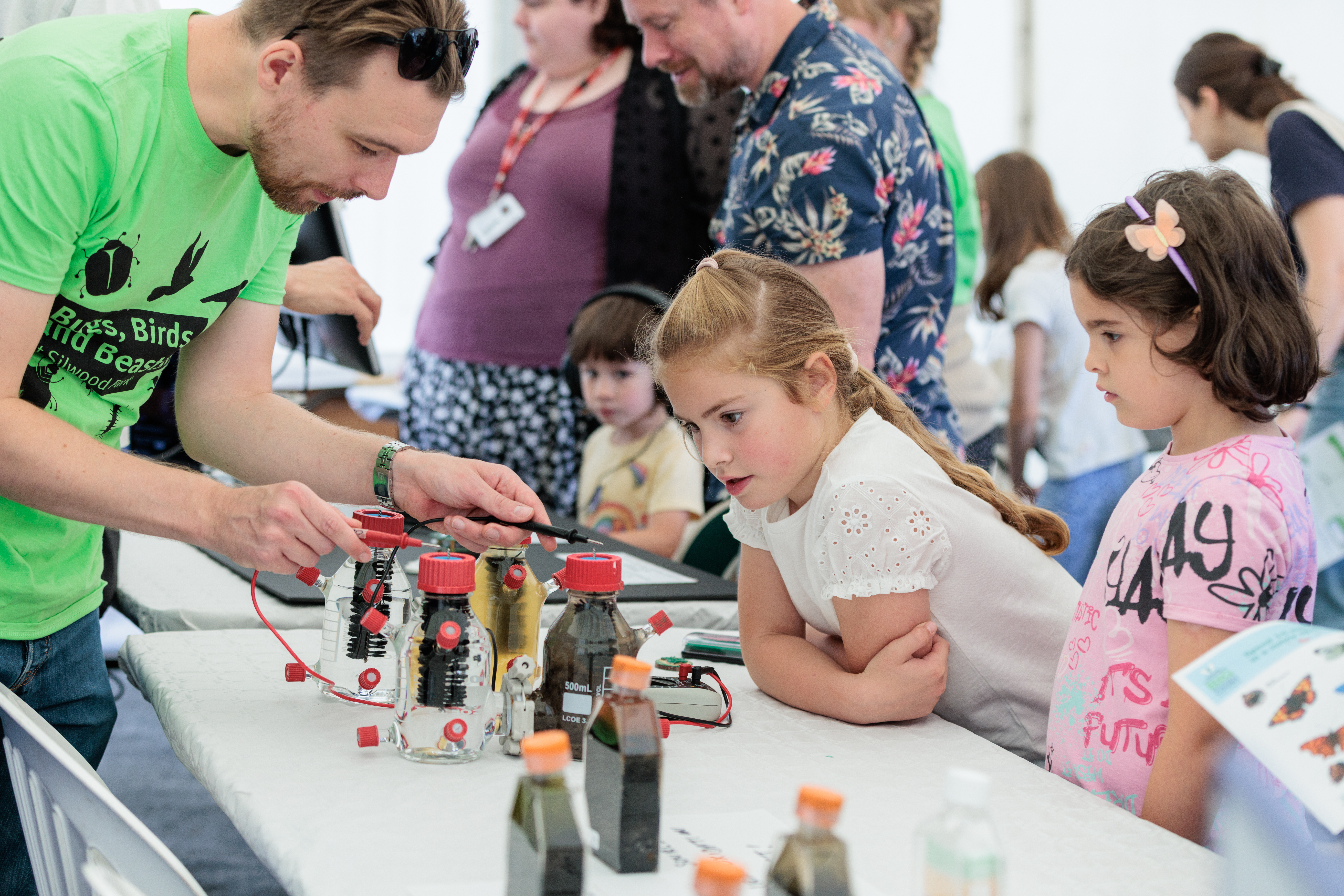
2022-12-05
Our paper "Latent functional diversity may accelerate microbial community responses to temperature fluctuations" is out in eLife! We found that changes in temperature can lead to the resuscitation of previously inactive species or strains, a potentially important mechanism for community responses to environmental change. 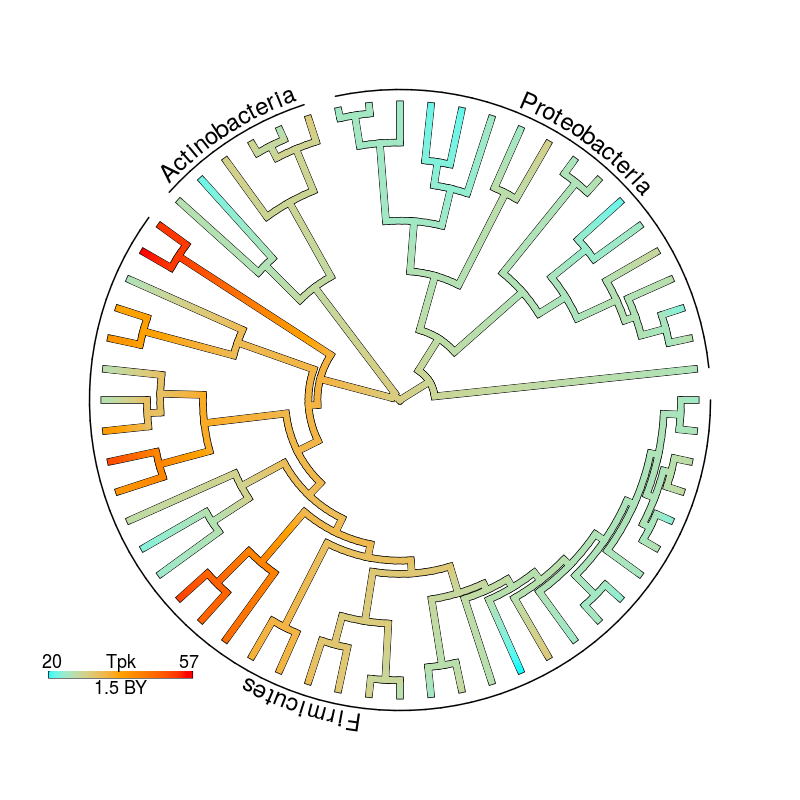
2022-10-07
We held an event for Silwood's 75th Anniversary celebrations, I spoke in one of the "young researcher" talks. 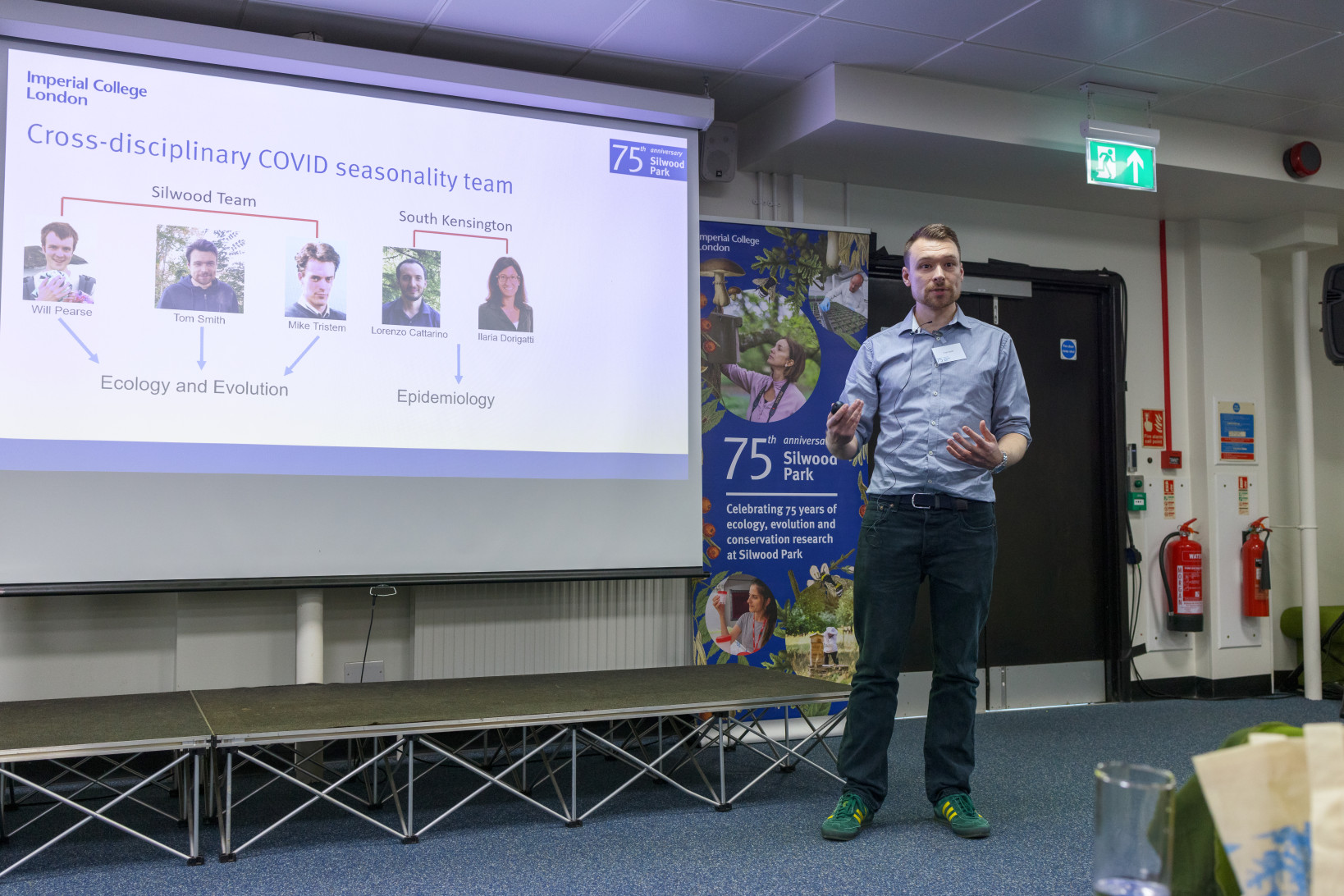
Here's a video recording of the full event: link2022-07-26
Bugs, Birds and Beasts day at Silwood: we set up a microbial ecology stand and had the kids drawing their interpretations of what a microbe might look like! 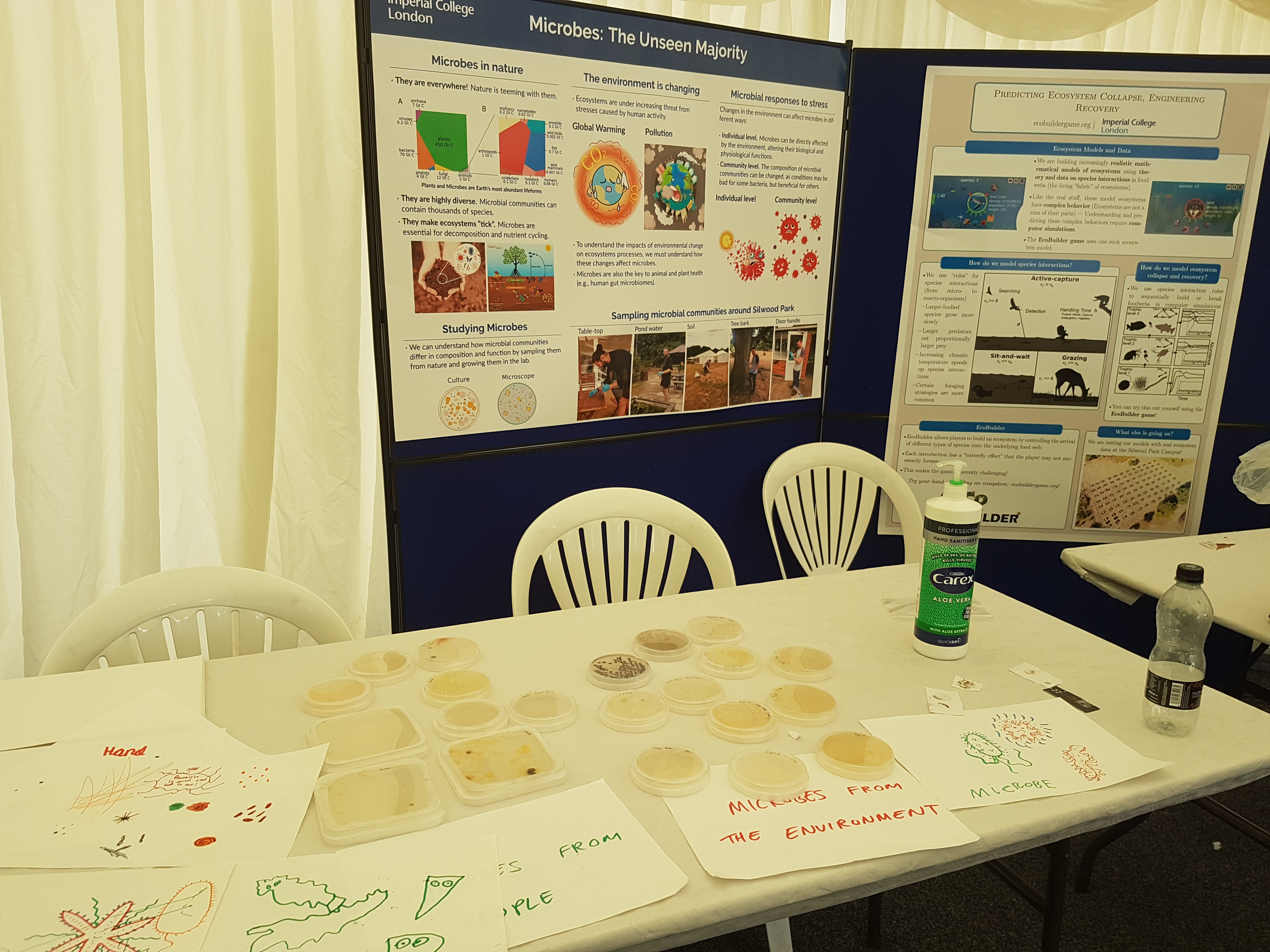
2021-12-15
Had a great time at BES Ecology Across Borders 2021, lots of engaging talks and interesting people to talk to. Here's me presenting our COVID work in the Parasites and Pathogens session: 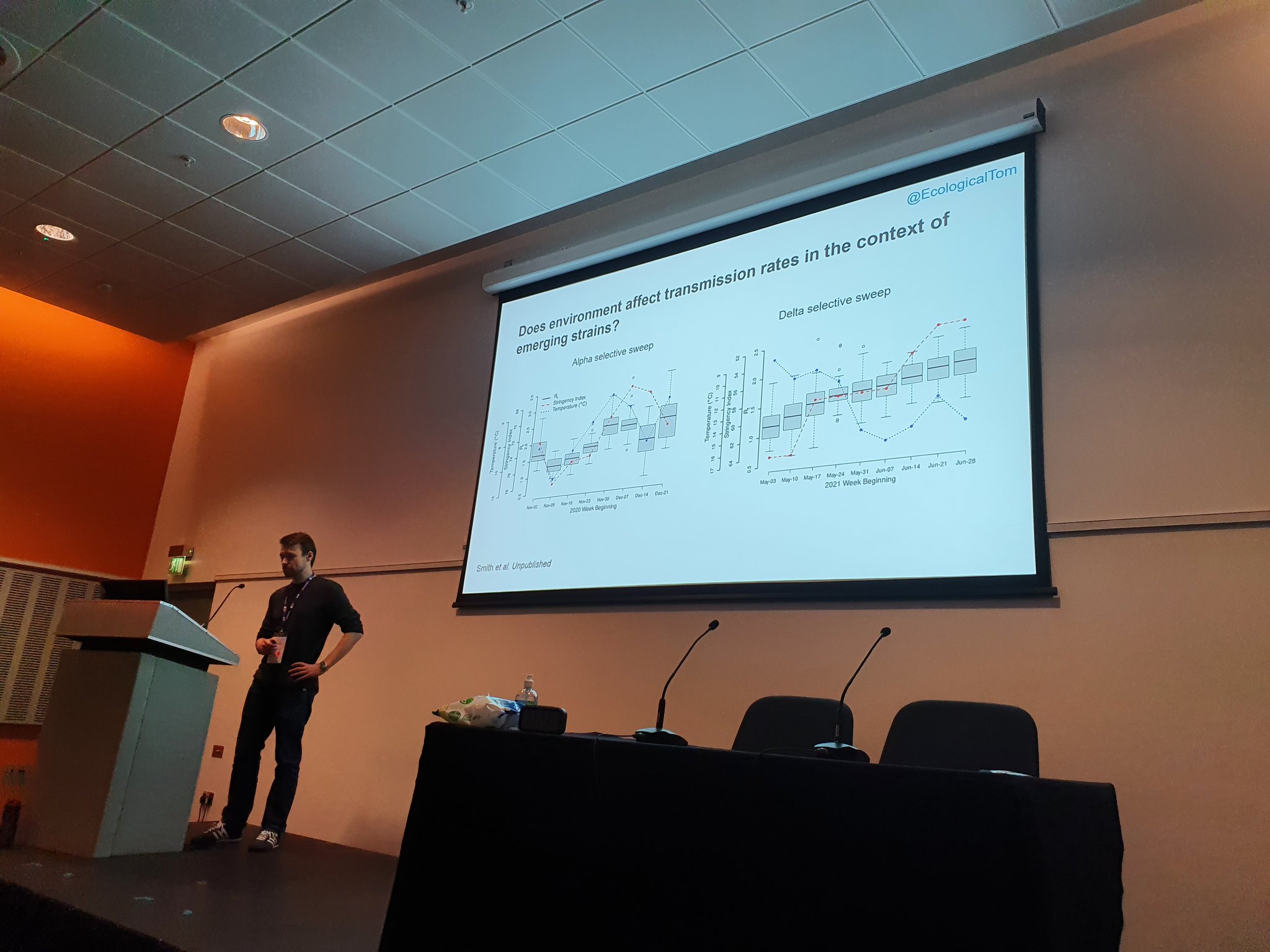
2021-10-06
We've published a pre-print about our new data project "AREAdata" to share spatially averaged climate datasets: "AREAdata: a worldwide climate dataset averaged across spatial units at different scales through time".2021-07-20
Our COVID PNAS paper was referred to in a Guardian article about weather and COVID transmission: https://www.theguardian.com/world/2021/jul/20/does-warm-weather-mean-you-are-less-likely-to-catch-covid.2021-07-09
Our bacterial carbon use efficiency paper has been published in Ecology Letters: "Systematic variation in the temperature dependence of bacterial carbon used efficiency". We found that bacterial CUE tends to respond positively or be invariant to temperature. This is contrary to how microbial CUE is often paramaterised in biogeochemical models.2021-06-08
Our first COVID paper is out in PNAS: Temperature and population density influence SARS-CoV-2 transmission in the absence of nonpharmaceutical interventions". We found that temperature and population density can have a significant impact on the transmission rate of COVID-19, but only when non-pharmaceutical policy interventions are not in place. When measures are in place to restrict human movement, environmental effects are negated. Press-release here: https://www.imperial.ac.uk/news/223233/warmer-temperatures-lessen-covid-19-spread-control/2021-04-19
The final piece left over from my PhD work is now available as a preprint: "Latent functional diversity may accelerate microbial community responses to environmental fluctuations". We performed a species sorting experiment to uncover the latent diversity in microbial thermal fitness present in soil. We find that strains with different life history traits switch on under different thermal conditons. In particular, we see a difference in the temperatures where r- and K- specialist taxa are obtained from. This shows that microbial community function is likely to respond rapidly to changes in the environment, via species sorting acting upon the broad diversity present within communities.2021-03-22
Second COVID pre-print out on the UK VOC: "Environmental drivers of SARS-CoV-2 lineage B.1.1.7 transmission intensity". We found that, similar to our work on COVID-19 transmission in the USA, transmission of the UK "Variant of Concern" (VOC; lineage B.1.1.7) was affected by temperature and population density when full "lockdown" was not in place. We also found a transmission advantage over other strains in warmer conditions - concerning for B.1.1.7's invasion of Europe through the spring and summer.2020-09-14
Second paper from my PhD available as a preprint: "Systematic variation in the temperature dependence of bacterial carbon use efficiency". We found that bacterial CUE tends to respond positively or be invariant to temperature. This is contrary to how microbial CUE is often paramaterised in biogeochemical models.2020-09-14
First COVID pre-print from the Pearse lab: "Environment influences SARS-CoV-2 transmission in the absence of non-pharmaceutical interventions". We found that temperature and population density can have a significant impact on the transmission rate of COVID-19, but only when non-pharmaceutical policy interventions are not in place. When measures are in place to restrict human movement, any effect of environment is much decreased.2019-11-12
New paper out in Nature Communications: "Community-level respiration of prokaryotic microbes may rise with global warming". Associated press release: https://www.imperial.ac.uk/news/193867/bacteria-contribute-more-climate-change-planet/





